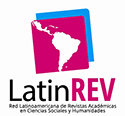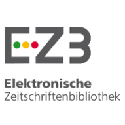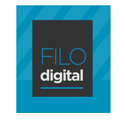Geo-Inquiry: estrategia metodológica innovadora para la enseñanza de temas transversales en Geografía
Abstract
Geography, as a scientific discipline, allows the teaching-learning of cross-cutting themes in the classroom. The purpose of the article is to present the results of the application of the Geo-inquiry project in the Region of Coquimbo (Chile) as a methodological strategy for the teaching of cross-cutting themes in the field of Geography. The Geo-Inquiry project corresponds to an active methodological strategy that aims to help future geography teachers, primary and secondary school students to develop skills, knowledge and tools related to the development of geographical thinking and cross-cutting themes in the context of teaching Geography. We worked with a sample of educational establishments in the Coquimbo Region, Chile. Methodologically, an analysis of the work carried out by the students was carried out. Among the main results, it can be seen that the application process of the Geo-inquiry project facilitates the process of geographic transversality in the school environment and in the initial training of teachers. KEYWORDS: GEO-INQUIRY. GEOGRAPHICAL EDUCATION. GEOGRAPHICAL TRANSVERSALITY. GEOGRAPHY DIDACTICS.Downloads
References
(CPEIP) Centro de Perfeccionamiento, Experimentación e Investigaciones Pedagógicas (2021). Estándares Pedagógicos y Disciplinarios para Carreras de Pedagogía en Historia, Geografía y Ciencias Sociales. Aprobados por el Consejo Nacional de Educación CNED en resolución N°068 de 2021. Ministerio de Educación. Santiago de Chile.
Hernández, R. (2010). Metodología de la investigación. Santafé de Bogotá: Mcgraw-Hill.
Domingues, R. F., & Assis Olgin, C. de. (2023). Temas Transversales Contemporáneos y la Enseñanza de Funciones en los Libros De Texto de Escuela Secundaria. PARADIGMA, 44(5), 82-103. https://doi.org/10.37618/PARADIGMA.1011-2251.2023.p82-103.id1437
Maude, A. (2020). The role of geography’s concepts and powerful knowledge in a future 3 curriculum. En: International Research in Geographical and Environmental Education 29 (3), pág. 232–243. DOI: 10.1080/10382046.2020.1749771.
Maddox, L., Howell, J. & Saye, J. (2018). Designing geographic inquiry: Preparing secondary students for citizenship. Journal of Geography, 117 (6), 254-268.
Mohan, A. (2018). “Valuing student thinking in the inquiry process”. The Geography Teacher 1:3-4.
Muñoz de la Calle A. (1997). Los temas transversales del currículo educativo actual. Revista Complutense de Educación, 8(2), 161. https://revistas.ucm.es/index.php/RCED/article/view/RCED9797220161A
National Research Council. (2012). A framework for K-12 science education: Practices, crosscutting concepts, and core ideas. The National Academies Press.
Oberle, A.P.; Bess, J.; Ehmke, K.; Rath, S. & Robbins, A. (2019). Geo- Inquiry: Informed Action to Make our World a Better Place. The Geography Teacher, 16 (4), 170-178.
Oberle, A.P. (2020). Advancing students’ abilities through the Geo-Inquiry Process. Journal of Geography, 119 (2), 43-54.
OECD (2018), Panorama de la educación 2017: Indicadores de la OCDE, Fundación Santillana, Madrid, https://doi.org/10.1787/eag-2017
Copyright (c) 2025 Fabian Araya Palacios, Sandra Álvarez Barahona

This work is licensed under a Creative Commons Attribution 4.0 International License.

 Important notice
Important notice




















